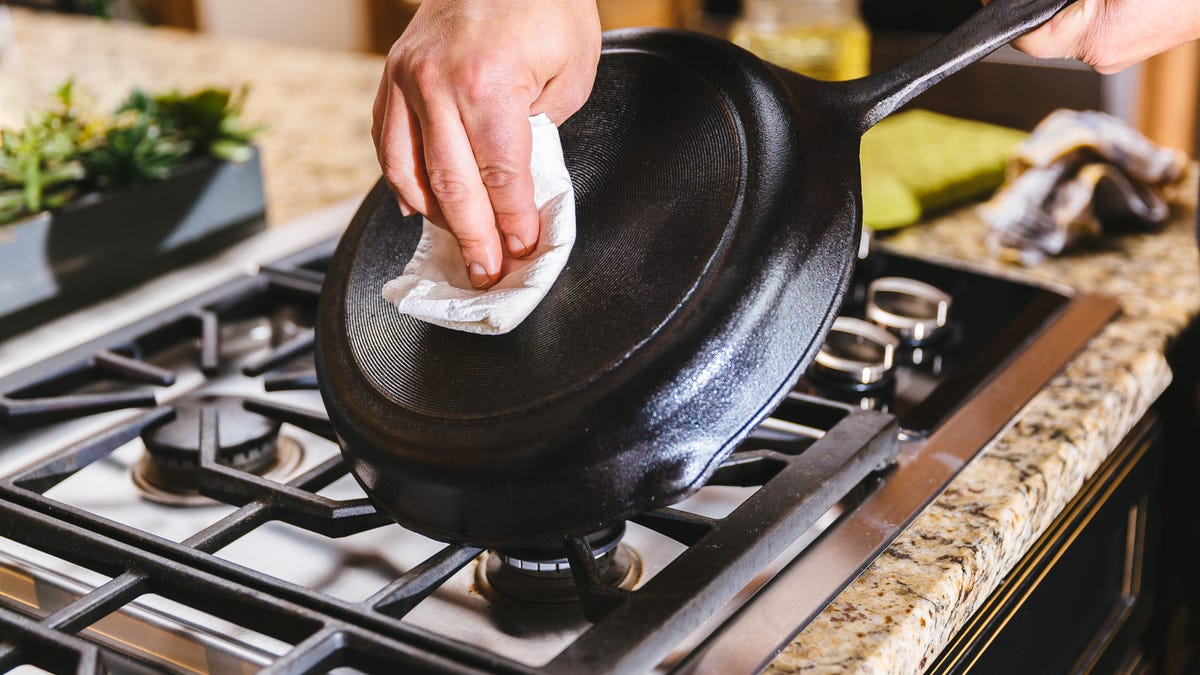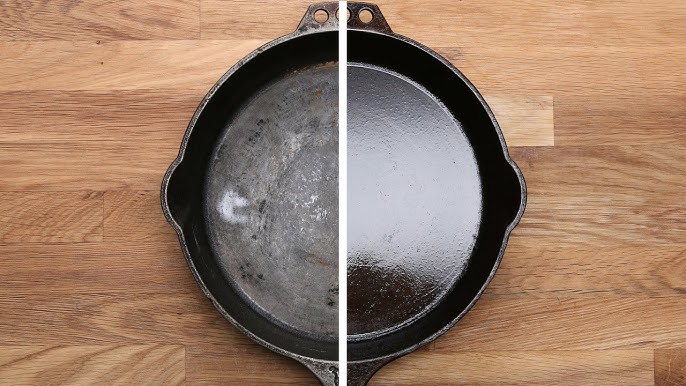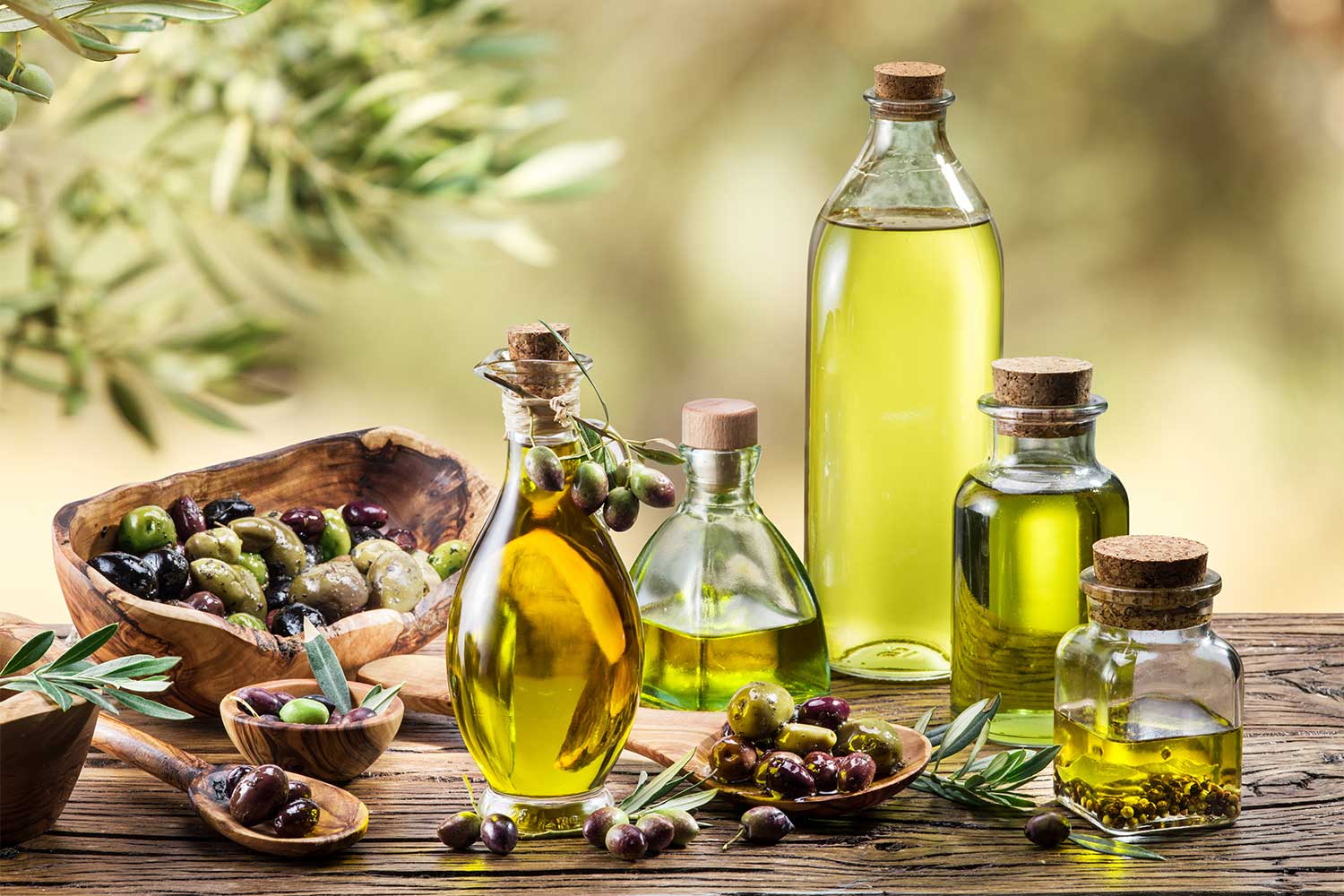When it comes to maintaining and ensuring the longevity of your cast iron cookware, finding the best oil for seasoning cast iron cookware is paramount. This guide is designed to provide kitchen professionals with an in-depth understanding of the oils best suited for seasoning cast iron, ensuring that your cookware remains in top condition for years to come.
Seasoning not only enhances the non-stick properties of cast iron but also protects it from rust and wear. As a culinary enthusiast or a kitchen professional, understanding the science behind seasoning will help you make informed decisions on maintaining your beloved cookware.

Understanding Seasoning: What's the Process?
Seasoning cast iron cookware involves creating a layer of polymerized fat that bonds to the surface, forming a protective and non-stick coating. It may seem straightforward, but the choice of oil can significantly impact the effectiveness of this process. Factors like smoke point, flavor remnants, and compatibility with dishes must guide your selection.
The Importance of Choosing the Right Oil
Kitchen professionals understand the significance of quality ingredients. Just like your dishes, the oil you choose will affect the taste, texture, and functionality of your cast iron cookware. The best oil for seasoning cast iron cookware has a high smoke point and neutral flavor, making it more effective for creating that sought-after seasoned finish without undesirable flavors.
Top Oils for Seasoning Cast Iron Cookware
Now, let's delve into some of the top choices available:
1. Flaxseed Oil
Flaxseed oil is often lauded as one of the best options for seasoning due to its high smoke point and rich omega-3 fatty acids. When heated, it creates a durable and hard layer of seasoning that enhances the cookware significantly. Its neutral taste ensures that no unpleasant flavors get transferred to your food.
2. Grapeseed Oil
Another remarkable choice is grapeseed oil, which also possesses a high smoke point. It is known for its light flavor and is often recommended by chefs for seasoning purposes. The oil promotes a strong polymerization effect, ensuring a stable and long-lasting seasoning layer.
3. Canola Oil
Canola oil is a kitchen staple and doubles as an effective seasoning oil. It is affordable and has a high smoke point, making it perfect for high-temperature cooking. However, it may not create as robust a layer as flaxseed or grapeseed oils.
4. Crisco or Vegetable Shortening
For those seeking convenience, Crisco or other vegetable shortenings are fantastic options. They have high saturated fat content, which contributes to creating a solid seasoning layer. However, monitor carefully for any flavor that might linger.
5. Olive Oil: A Cautionary Note
While many adore olive oil for its flavor, it is not an ideal choice for seasoning cast iron. Its relatively low smoke point may lead to a sticky residue rather than a clean, seasoned finish. If you find yourself drawn to olive oil, consider using it for cooking rather than seasoning.
The Seasoning Process: Step-by-Step
Once you've chosen the best oil for seasoning cast iron cookware, its time to implement the seasoning process. Heres how:
- Preheat your oven to 375F (190C).
- Clean your cast iron cookware thoroughly, removing any old seasoning or rust.
- Apply a thin layer of your chosen oil all over the cookware using a paper towel.
- Turn the cookware upside down in the oven. Place a baking sheet underneath to catch any drips.
- Bake for about an hour to allow the oil to polymerize.
- Let it cool, and repeat the process a few times for optimal seasoning.
Maintaining Your Seasoned Cast Iron
Once you've seasoned your cookware effectively, it's essential to maintain it. Here are a few tips that kitchen professionals swear by:
- After cooking, avoid soaking your cast iron in water.
- Use a stiff brush or scraper for cleaning; avoid soap unless absolutely necessary.
- Re-season your cookware periodically to maintain optimal performance.

FAQs About Seasoning Cast Iron Cookware
1. How often should I re-season my cast iron cookware?
It is recommended to re-season your cast iron cookware every few months or when you notice it starting to lose its non-stick properties.
2. Can I season cast iron on the stovetop?
Yes, you can, but the oven method is generally preferred for even seasoning.
3. What should I do if my cast iron turns sticky?
This is often due to excess oil. Scrub the surface and re-season it using less oil next time.
To read more about the best practices in seasoning various cooking tools, check out the wonderful insights on seasoning your grill or gain knowledge on flat top grill seasoning. If you want to dive deeper into cast iron specifics, explore seasoning a cast iron pan.
In conclusion, by choosing the right oil and following these techniques, you can ensure that your cast iron cookware performs at its very best.
As an Amazon Associate, I earn from qualifying purchases.






Leave a comment
This site is protected by hCaptcha and the hCaptcha Privacy Policy and Terms of Service apply.